Vol. 2, The Dena’ina Belief Stories of Peter Kalifornsky
Peter Kalifornsky (1911-1993) was a member of the Kenaitze Indian Tribe, a Dena’ina Athabaskan in Kenai, Alaska. He was the last speaker of his language, a variation of Dena’ina, and the first to bring it into written literature. He was a man of literary sensibility.
Vol. 1, From the First Beginning, When the Animals Were Talking, presents Peter Kalifornsky’s animal sukdu in English, and his long conversations with Katherine McNamara about the meaning of the stories.
In this new volume, Peter Kalifornsky explores how the Dena’ina were willing to test the truth of their dreams and beliefs, by going up against great powers—the great invisible power that the k’ech’eltanen followed; the animal powers, of which bear’s was the greatest; the various shamanic powers; the Man Whose Word Comes True—for the sake of learning truth. They put their very lives at risk, according to the stories. And why was this so?
There is a mystery that Peter Kalifornsky said should go at the end of every story:
Yadidi sukdu egh? k’ushta beq’eynikdelnik. What is this story about? We cannot find what is behind it.
Sukdu beq’ quht’ana ghuda ch’ulani. The story lays a trail before us; we follow it to become human.
Bech’ nayich’chi. Something gives us what we breathe. What is it?
Readers have commented:
I am pleased to see the development of From the First Beginning When the Animals Were Talking: The Work of Peter Kalifornsky, compiled, and edited by Katherine McNamara. The presentation of this material in a multitouch edition is exciting and will be invaluable for the Alaskan tribes and schools, scholarly and general public. The late Peter Kalifornsky was a Dena’ina scholar and well-respected in Alaska for his gift in relaying traditional knowledge that is so important to the younger generation. —Karen Evanoff, Dena’ina Cultural Anthropologist
In addition to its value as a cultural artifact, Kalifornsky’s writing, with its skillful use of metaphor, form, and theme, has lasting merit as a work of literature, one which helps reveal the cultural beliefs of his tribe and the operation of its collective creative imagination across time. Kalifornsky’s writing also raises important questions relevant to comparative literary theory—about Western thinking, the individual as the creator of art, the use of politics in writing, and other issues essential to discussion about what constitutes literature in the first place. For thirty years Katherine McNamara has been committed to the preservation of Kalifornsky’s work, having received his approval for her efforts and her translations into English of his work. She may well be the only person completely familiar not only with Kalifornsky’s manuscripts and the culture in which they originated, but with the spirit and intention of his work. —Sheila McMillen, former Associate Editor, Virginia Quarterly Review
To say that Katherine McNamara’s four-volume compendium of the writings and commentaries of Peter Kalifornsky is an important work does not convey just how important it is to the Dena’ina people, Alaska Native cultures, and, I believe, to readers everywhere who will be touched by it. The wisdom of Peter Kalifornsky’s work is as relevant to contemporary readers as it was to Dena’ina people of the past. From the First Beginning, When the Animals Were Talking, and the remaining three volumes of the stories, commentaries and conversations of Peter Kalifornsky, is a cultural and literary legacy preserved and presented to the public by a writer who took the time to get it right. —Leonard Kamerling, Curator of Film, Museum of the North, and Professor of English, University of Alaska
The series From the First Beginning, Vols. 1 & 2, is available on Apple Books.
Vol. 1, From the First Beginning, When the Animals Were Talking
Journal of the Kalifornsky Project
Image: Detachable spear point (brass point), Iliamnatana Tanaina, Athapaskan. (re-set spear) YPM ANT.015856 Yale Peabody Museum of Natural History. Courtesy of the Anchorage Museum. Photographer: Chris Arend. Used with permission.
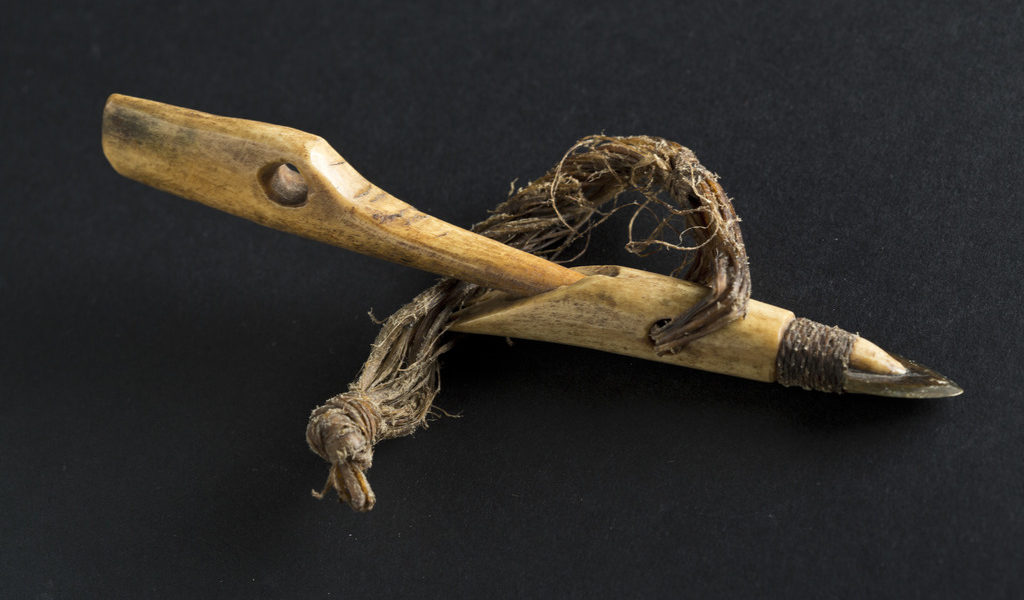
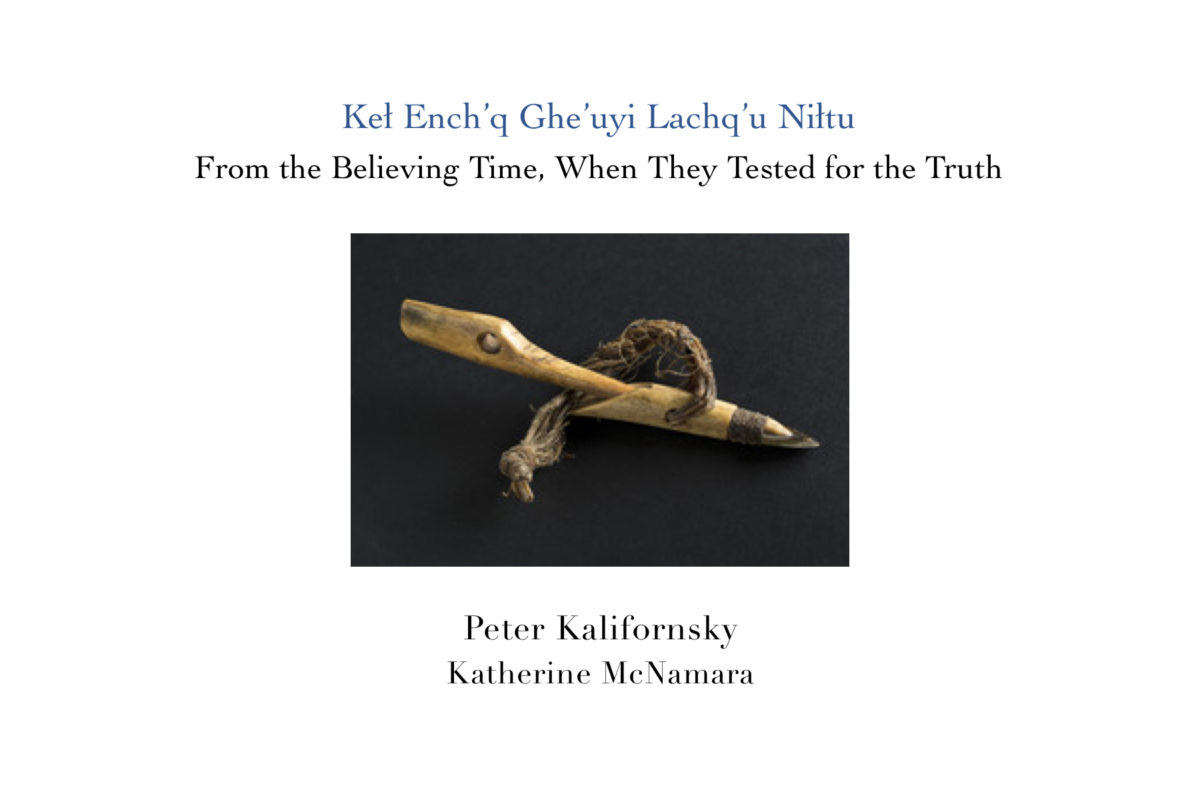
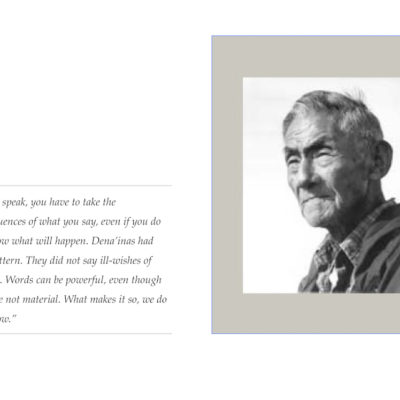
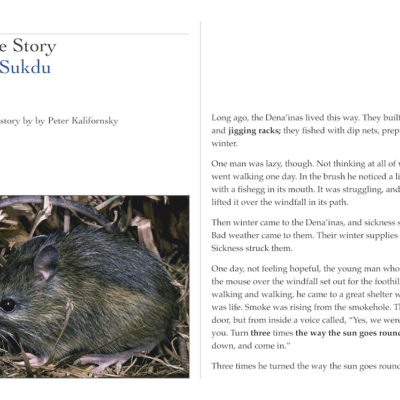
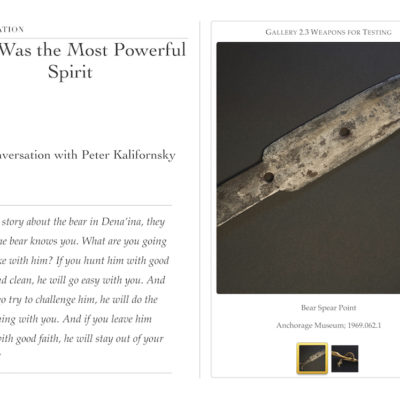
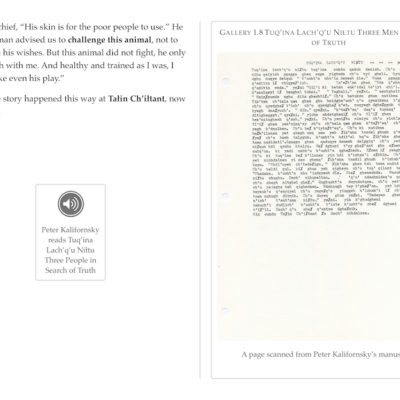
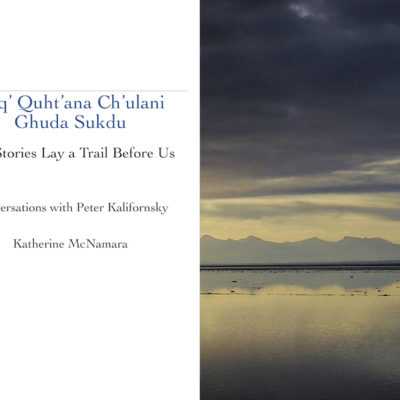
You must be logged in to post a comment.